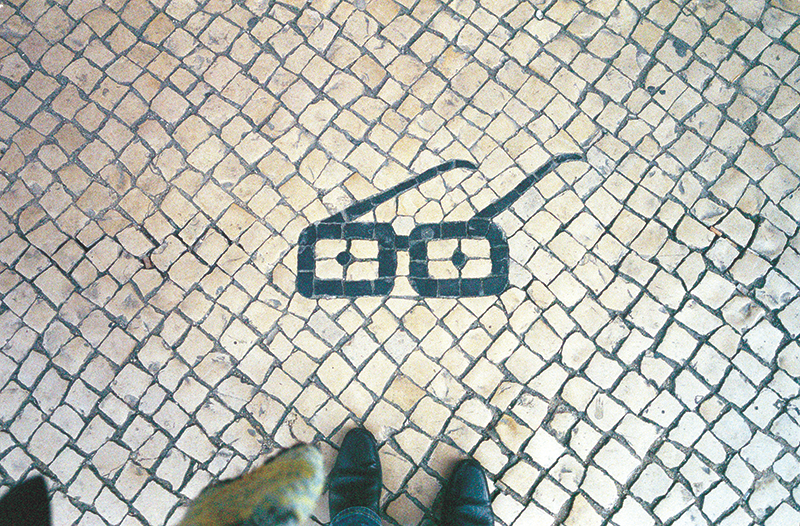
September 12, 2017
A Busy Woman

In this personal essay, the founder of SVA’s Design for Social Innovation program and former AIGA Women Lead committee member Cheryl Heller reflects on the insights gained over the arc of her career. Through corporate success, betrayal, and reinvention, Heller found a new sense of strength in the face of uncertainty—and an understanding of what you just shouldn’t stomach anymore.
Something I learned in 2001: unlike classic psychiatrists, who will drag out a conversation for years without giving much away if they can manage it, psychopharmacologists will, after half an hour’s probing, tell you bluntly what they think is wrong with you. Their aim is to diagnose quickly, then prescribe meds to make the symptoms go away. Root causes are left to those tear-basted, rearview-mirrored journeys on the couch.
I was sent to a meds-dispensing doctor by a query-dispensing one at the end of a year that imploded all assumptions I had based my life upon and filled my belly with fear.
The cause for escalation of treatment came on suddenly. Sitting in a restaurant, lunching with two people whose names I would no longer recognize, I took a spoonful of soup and could not will the muscles I needed to swallow. Holding the soup in my mouth, I lost connection, too, with the conversation at the table, one in which I was being offered a job in San Francisco. It is disorienting to lose control of the body, of such an unconscious act, too, that everyone around but you seems to accomplish without concentrating. The first sensation is of suffocation; then panic. Blood drains from the brain until reflex kicks in and it becomes clear that the nose still works to take in air. But a restaurant, on a job interview, is not the easiest place to sit frozen with a mouthful of soup, unable to speak. Unlike a bit of gristle or the occasional thyme stem, a mouthful of soup cannot be deposited in a linen napkin with discretion. And in that context, when it does finally, awkwardly, slide down your throat, the incident is not one you want to explain.
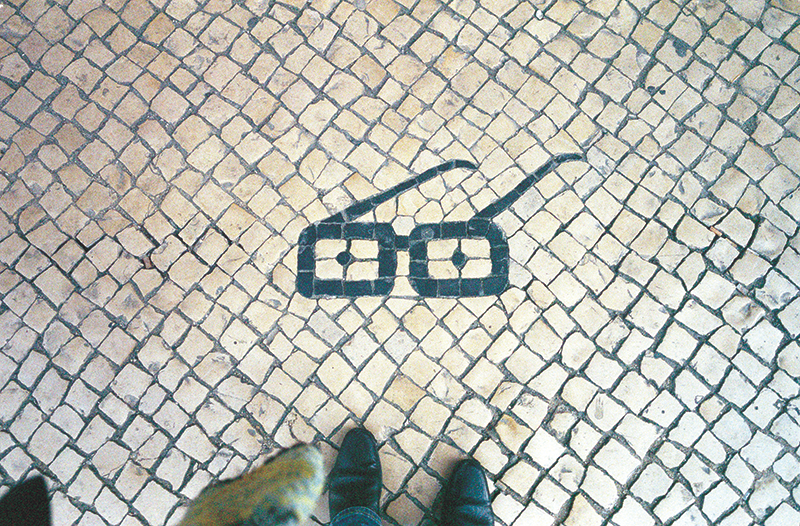
I didn’t want the job, I had only flown to California because I never decline to talk to someone who says they want me for a great work opportunity. 2001 was the loudest moment of the Internet boom, with everyone rushing madly to blow into the bubble, counting on their own hot air to turn to solid ground beneath them, and telling stories they convinced each other were true. The Internet was the answer to everything.
I had recently escaped a job in a global company where I created obscenely expensive identities for multi-national corporations. My title was Executive Creative Director in an organization of about two hundred and twenty five people. We were high-priced consultants, trained to sound and act like friendly but imperious experts even in areas in which we weren’t. We were called in when companies merged or bought another business or got sold, or simply hit a slump and needed to be reinvented.
Every once in a while, we would get an amazing assignment, like when MOMA sent a letter saying, “We’re the Museum of Modern Art and we just bought a contemporary art museum. What should we do?” But mostly we changed the shade of blue on someone’s logo, or switched it from a Roman font to italic, then told them to repaint their trucks and charged them a million dollars or two.
I am exaggerating, but only somewhat. I’m cynical now as I look back, but we were really only doing what companies hired us to do. They felt younger with a new shade of blue, more forward looking and modern in italic, were energized by seeing freshly painted trucks with their name on them, and didn’t feel they got something important unless they paid a lot of money for it.
In this busy work environment, everything (including the busy-ness) mitigates against stopping to think about the big picture of what it is one is actually doing. I came to love my clients, who were trying hard to do a good job and take care of their employees; who believed in the essential rightness of American Industry. They were not corporate monsters, but people with kids who played soccer and broke arms. They were people who worried about their companies doing well, and I was there to help them. There were moments, in fact years, when it felt almost noble.
The identity business was a big one (maybe still is). We made people happy while we minted money, and I had great fun at this particular company for eight years. Then the founder decided to buy the company back from the people he had already sold it to, brought in investors and asked a small number of senior people to become partners. That’s when things went to hell. I got a higher percentage than most (meaning, more than some men) when it came to distributing ownership, because I was bringing in sixty percent of the company’s income.
After the pseudohandshakes and PR photos and the toasts with champagne in plastic glasses, a number of my partners, who before this moment had played together nicely, turned into a nest of pit vipers lying in wait to land a fatal fang.
The reason this was so important to them at that moment was that the Internet gold rush for money, or multiples, as profit was called then, caused otherwise normal people to lose their minds. These were the years when “millionaire” became a non-starter and billionaires became the new normal. People we actually knew were buying airplanes and condos in Aspen. My two or three percentage points of additional ownership could mean, in my partners’ greedy imaginations, a weekend house in the Hamptons.

The swallowing thing didn’t make sense, though. It should have happened any time during that previous year, when I woke up with a stomach ache and cried every day before heading to the office in anticipation of what mortifying evidence of betrayal I would find there. Nothing direct, of course. Never to my face, never in conversation, never with the option of rational discussion. One day I arrived to find that my team, hired and depended upon by me, had been told they reported to a male colleague. That was announced at an all-staff meeting to which everyone but me was invited. Given I had the third highest title in the organization, it was untoward behavior to say the least. Brazen and cowardly at the same time, all behind the scenes, secret schemes from the cabal that, when I tried to air them, would be met with: “Why are you overreacting?” or “Why are you being so emotional?”
Walking away meant forfeiting my share of ownership to them. Friends said, “Just suck it up until the company is sold. This happens all the time in business. If you stick it out, you’ll be rich and free.” But it went on. My partners thought they could sell the company within a year. They became more arrogant, and more mean. But it was clear, to me at least, that things were not headed toward the swift, glorious exit they imagined.
I found small comfort in a late night showing of the movie Gaslight, in which Charles Boyer marries Ingrid Bergman and tries to make her think she’s losing her mind while he ransacks the attic for the jewels that are her inheritance. He too, devises elaborate tricks to erode confidence in her own perceptions, tries to make her feel like a credulous alarmist. He almost wins, except Joseph Cotten is on to Boyer’s evil plan and comes to Bergman’s rescue.
My Joseph Cotton was a lawyer, not a cop. He was difficult to find; the third I had briefed on the situation about which I did not want to speak out loud to anyone. He was famous for defending the women a certain magazine magnate crushed when he was done with them. (Editors at this publishing company would learn they’d been discarded when they were the only ones not included at a dinner party chez chairman. That was the writing on the antique linen covered wall.)
I turned over to my lawyer a twelve month diary of daily horrors filled with emails, memos, bits of notes on conversations and comments with dates, times, participants, all evidence I’d been collecting to prove I was not “overreacting,” that this was not simply the normal behavior of an ambitious business in the throes of plumping itself up to be sold.
“You don’t have to tolerate this,” my attorney said, “I’ll help you get out.” I cried in the public bathroom at ABC Carpet and Home where I took his call, pretending I had just seen a duvet cover so beautiful it brought tears to my eyes.
He wrote a missive to the company’s founder, using words strung together in attorney-code. The letter came from me, but that was code, too, of course, since my own communication to all of them had been of softer things: injustice, loyalty, ethics, the reasons I thought we had once if not loved then liked each other and become partners in the first place.
In this line-in-the-sand letter, it said blah blah blah you better knock it off “or I will pursue my remedies against you.” Those were the magic words that unlocked the prison vault, that provided the cover for me to walk out. That was also around the time I found the query-dispensing shrink.
Freedom was euphoric, like the moment after you concede that death would be an acceptable alternative to prolonging the satanic pain of a kidney stone, then suddenly the drug kicks in and you have your life back.
So, one full year later, after I survived this ordeal, the swallowing incident, which continued for months whenever I ate in front of people, came as a surprise.
The psychopharmacologist’s diagnosis for the cause of these repeated (apparently classic) panic attacks was: “You have managed your life thus far by reinventing yourself. When a situation no longer fits, you escape the effort of figuring out who you are by repeatedly transforming yourself into someone else. Soon, you will have to confront the fact that you are running out of time for reinvention. You should figure out a way to be happy with who you are, which will require finding a way to value yourself outside of work, before you’re TOO OLD (caps mine). I’m prescribing Wellbutrin.”
The first part of her diagnosis did not seem odd to me, since most of the women I know of my generation have done, and continue to do, the same thing. If we didn’t repeatedly reinvent ourselves, we would remain in the same place forever –– trapped in low-level careers, passed over for the real opportunities, locked out of the boys club, married to the man of our house, tied to children well past the point where they needed us, never having thought of what it would take to make us happy. Work was the way we gained the confidence and independence to do this.
The second part, the one about being happy with who I am, was still, at that time, out of the question. That would have required rewiring every nerve synapse in my ambitious American body, conditioned by years of striving to want more, always, and being rewarded for it. Plus, my ambition, and my success, were the only me I knew. They were the beginning, middle, and end of my own identity. I was an achiever and the reason I was able to do that well was because I was never happy with who or where I found myself. Imagine being told one day to change that, even if it was possible just because someone said so.
There was a time, years ago, when I was afraid to go on vacation because I would leave all sense of myself behind. I literally did not know myself without a job description. I was right to be afraid, because, in fact, I did lose myself and get depressed –– unlike the other twenty-somethings on the beach in Guadeloupe or all the seemingly happy people on the streets of Rome or Paris. I had trouble knowing what I wanted, or what I wanted to do, have for lunch or wear. It kept me from trying new things, like snorkeling, say, since I didn’t know if I was the kind of person who could do them.
The Wellbutrin eventually did the trick for getting soup down.

In Ceremony, Leslie Marmon Silko says that white people are always busy. She did not mean that as a compliment. She meant to say that white people are busy because we have no stories, no inner life, no grounding in nature or the spiritual world, no peaceful place inside us to dwell. Like someone who studies a computer screen but not a meadow, who spends the evening in the kitchen chopping vegetables and misses a life-changing conversation in the dining room. Who is never at peace; never silent or still long enough to see a shooting star or hear an owl hoot or know what a forest is like with no one else around. Who may know how they want to live, but not why.
But busy pays off in America. Work has been my ticket to everything that’s important to me. It enabled the escape from a childhood of dreary prospects and encouragement of nothing but motherhood, entree to places where I found love, my tribe, recognition, travel, art of every kind, exciting friends with dreams who want to share them, and who are smarter and more accomplished than me.
For women who began working in the years I did, “making it” required sacrifice. For the price of long hours at the office each week, we got to buy the clothes we saw in magazines, have our hair cut in the best salons, our nails manicured. We got to have our own bank accounts, eat in trendy restaurants, learn the names and flavors of cocktails—none of which my mother’s generation had done. We got to be, as far as we knew at the time, part of the man’s world.
I should add, here, something that may not be obvious after the lunch and failed-partnership incidents, and that is that I am an excellent worker. I have mule-like stamina. I am just obsessive enough about organization to make the wrangling of daunting situations flawless and almost invisible in that way that, when things are perfectly organized, all that is noticeable is what you’re doing and not how difficult it is to get it done. I do the nearly impossible regularly. It has been said, in fact, that: “Hiring her is the same as hiring an army.” Forgetting whatever it is I have accomplished or failed to accomplish, I am prioritized, selfless, relentless. A channeler of the problems I’m hired to solve. A getter of intended things done. In other words, I am a white person who has made an art of being busy.

Over time, I came to view the swallowing incident as a communication from my subconscious: “Don’t swallow this. It’s not good for us. Don’t say anything. Don’t say yes.”
From what now feels like safe distance, I see that my former treacherous partners gave me a blessing in the form of betrayal. It got me off a particular treadmill that I might never have had the strength to leave on my own. It gave me a crack to see through; a pause to question why any of it mattered; to consider how it was possible that none of us saw the empty chase we were on, the stress of continual striving, or the unsustainable organization we were helping to build. The emotional battering gave me a kind of strength that only losing, falling, or being betrayed can give.
While it didn’t for a moment cure my addiction to work, it made everything I had been doing until then toxic. I was left with a hole where work had been. I could no longer stomach sitting in meetings where no one said what they meant; or smarmy people who flattered then disparaged clients behind their backs; or selling expensive sneakers or hotel rooms or vodka or cement (yes, cement) for companies run without exception, by busy white people. In that moment, I peeked behind my own curtain and watched the self-delusional goings-on there.

The environmentalist David Orr writes that “If our industrial civilization was entered into an intergalactic design competition, it would be tossed out in the qualifying round.” Modern society, with all its technology and connectedness and freedom and miracles of healthcare and accomplishments in science is flawed so badly that it will inevitably cave in on itself. If we don’t stop trying to grow it.
This is the Puritanical work ethic, brought from the Old World to conquer the new; the work that kept the country going. This is our inheritance, the world my grandfather’s and my father’s generations believed in and served. This is the legacy of business.
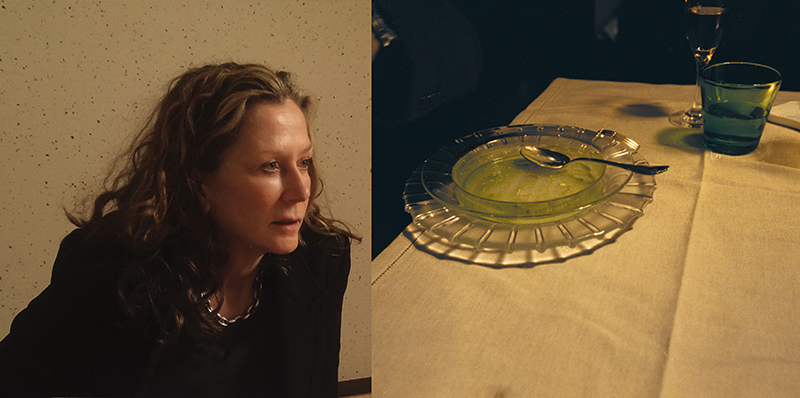
It has always been difficult for me to explain what I do. Titles and job descriptions only work inside the industry, or sometimes even the company, where they apply. Outside of that they are jargon.
I used to say, as a way of summing up all the years I spent helping companies grow, change, and romance their customers and employees, that I was a master at making people want things. I think perhaps this is still true. I have learned how to turn an idea into a desire; to entice people to stop and look at something and think about it differently; to smile about it, try it on, get on board. That, I have come to see, is power. It is my power.
Author Adrienne Rich said that a woman’s work is to do things that others undo. I now work to undo the damage that industrial, extractive companies have done. I work on fixes, on finding new models to replace those my father and grandfathers helped build. I work to reintroduce nature to modern life, to connect humans back to her, and to each other.
My clients now are former prisoners in Rwanda, poor construction workers in China, mothers and children in Sierra Leone. They are big foundations, any size non-profits working in healthcare, education, equity, conservation. They are young men using mushrooms to grow materials that will replace plastic, architects reinventing hospitals so they don’t make poor people sicker than they went in, or building memorials to all the people lynched in America. They are the growing army of inventors, founders, and creators who want to leave a different inheritance than the one they found. I know how to help them make people want these things.
Hope is a delicate proposition. It can’t be grabbed at like success. It needs space, and time; looking and listening. I am like any other recovering addict, always needing to be careful not to slip back, fall off the wagon into a state of mindless doing. But I eat soup in public now pretty much any time I want.
Observed
View all
Observed
By Cheryl Heller
Related Posts
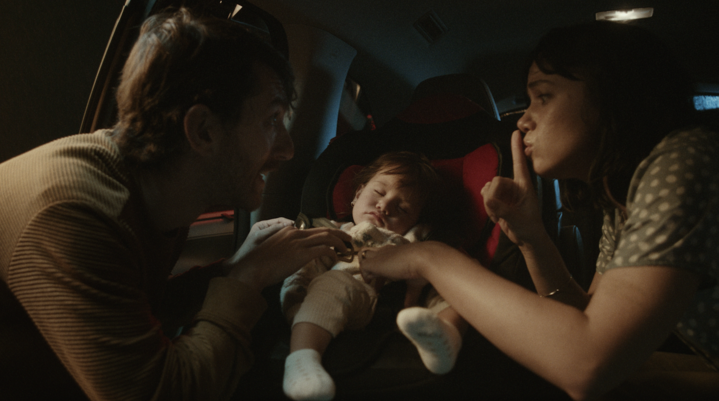
Business
Kim Devall|Essays
The most disruptive thing a brand can do is be human
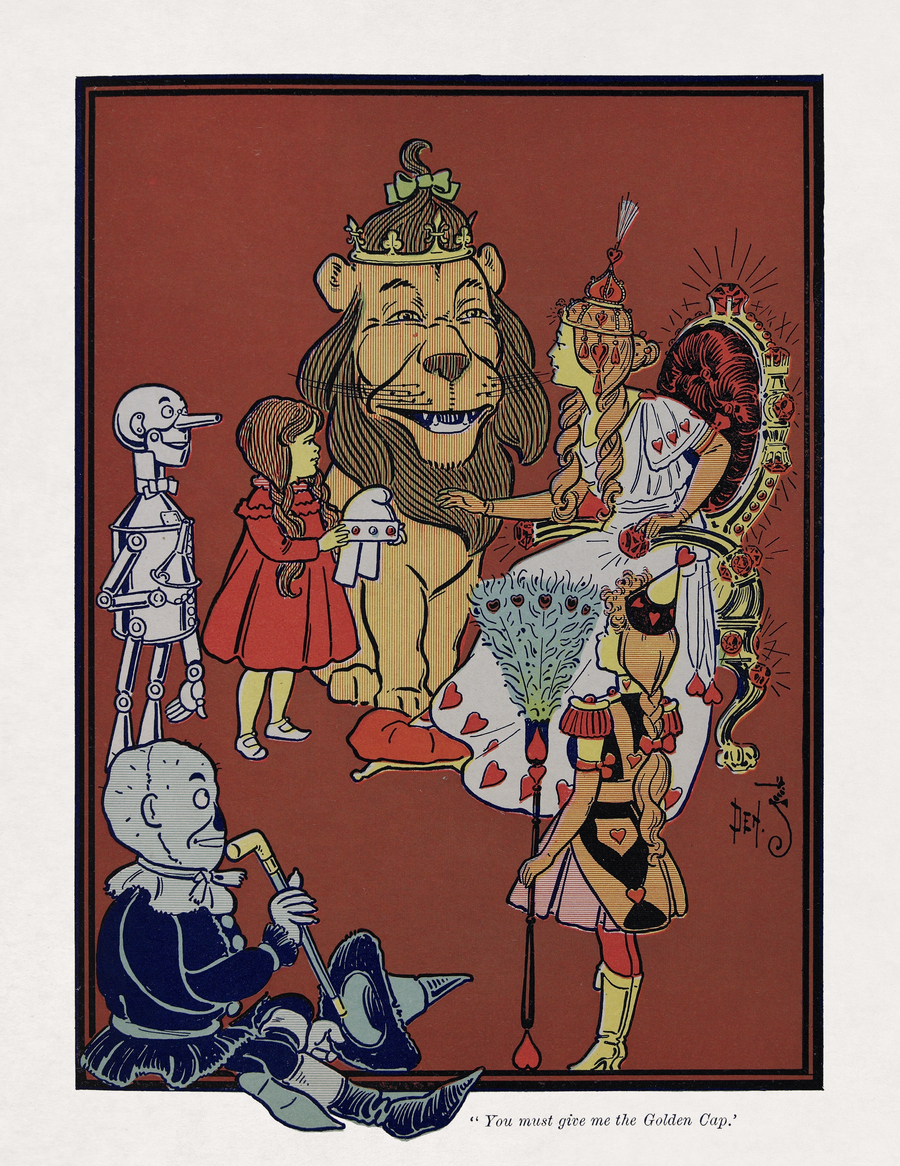
AI Observer
Lee Moreau|Critique
The Wizards of AI are sad and lonely men

Business
Louisa Eunice|Essays
The afterlife of souvenirs: what survives between culture and commerce?

Architecture
Bruce Miller|Essays
A haunting on the prairie
Recent Posts
‘Thoughts & Prayers’ & bulletproof desks: Jessica Dimmock and Zackary Canepari on filming the active shooter preparedness industry Making ‘change’ the product: Phil Gilbert on transforming IBM from the inside out AI can generate content, but it can’t generate feeling No mandates, only opportunities: IBM’s Phil Gilbert on rethinking changeRelated Posts

Business
Kim Devall|Essays
The most disruptive thing a brand can do is be human

AI Observer
Lee Moreau|Critique
The Wizards of AI are sad and lonely men

Business
Louisa Eunice|Essays
The afterlife of souvenirs: what survives between culture and commerce?

Architecture
Bruce Miller|Essays

 Cheryl Heller is the Founding Chair of the first MFA program in Design for Social Innovation, at SVA. She has founded two companies and taught creativity to leaders and organizations around the world, helped grow businesses from small regional enterprises to multi-billion global market leaders, launched category-redefining divisions and products, reinvigorated moribund cultures, and designed strategies for dozens of successful entrepreneurs.
Cheryl Heller is the Founding Chair of the first MFA program in Design for Social Innovation, at SVA. She has founded two companies and taught creativity to leaders and organizations around the world, helped grow businesses from small regional enterprises to multi-billion global market leaders, launched category-redefining divisions and products, reinvigorated moribund cultures, and designed strategies for dozens of successful entrepreneurs.